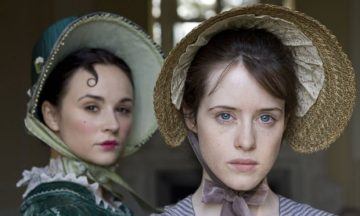John Mullan in The Guardian:
 As we await the final season of Game of Thrones, curiosity settles on a single question: how will it end? Fan sites buzz with speculation about what the most convincing conclusion could be. Surely Jon Snow’s true lineage will be revealed to him? Won’t we have to find out the truth about Cersei’s pregnancy? Will the White Walkers finally be defeated? And above all, who will reign at the end? The makers of the series have set themselves a challenge: conjuring what the great literary critic Frank Kermode called “the sense of an ending”, and they can no longer rely on the original novels of George RR Martin.
As we await the final season of Game of Thrones, curiosity settles on a single question: how will it end? Fan sites buzz with speculation about what the most convincing conclusion could be. Surely Jon Snow’s true lineage will be revealed to him? Won’t we have to find out the truth about Cersei’s pregnancy? Will the White Walkers finally be defeated? And above all, who will reign at the end? The makers of the series have set themselves a challenge: conjuring what the great literary critic Frank Kermode called “the sense of an ending”, and they can no longer rely on the original novels of George RR Martin.
…The most extraordinary example is one of the best of all 19th-century novels, Great Expectations. For this story, which had been appearing in weekly instalments in his own magazine, All the Year Round, Dickens wrote one of the few unhappy endings of his career. In the first draft, Pip returns from years working abroad. He is walking down Piccadilly with the young son of Joe and Biddy, named Pip after him. A lady in a carriage summons him; it is Estella. She is now married to a doctor who lives in Shropshire: “I am greatly changed, I know; but I thought you would like to shake hands with Estella, too, Pip. Lift up that pretty child and let me kiss it!” (She supposed the child, I think, to be my child.) I was very glad afterwards to have had the interview; for, in her face and in her voice, and in her touch, she gave me the assurance, that suffering had been stronger than Miss Havisham’s teaching, and had given her a heart to understand what my heart used to be.
Piercingly, Dickens and his narrator allow Estella to depart on a misunderstanding: she believes that Pip has married and had a son – but in fact he is alone, his capacity for love cauterised by his experiences. He does not get Estella; he does not get anyone. When Dickens’s friend and fellow novelist Edward Bulwer-Lytton read this he was horrified. What would the author’s loyal readers, who expected their usual happy ending, think? Dickens was persuaded to write a new ending, in which Estella is husbandless when she meets Pip again in the ruins of Satis House. This time the narrator sees “no shadow of a future parting” from the woman he loves. Dickens, who scanned his monthly or weekly sales with just the attention a TV producer might give to viewing figures, succumbed to fears about what his audience wanted. He scrapped a brilliant ending in favour of a merely serviceable one. Have the scriptwriters of Game of Thrones been worrying in a similar fashion about what their devotees want and expect? Or will they give us an ending as arbitrarily brutal as the world they have created?
More here.
